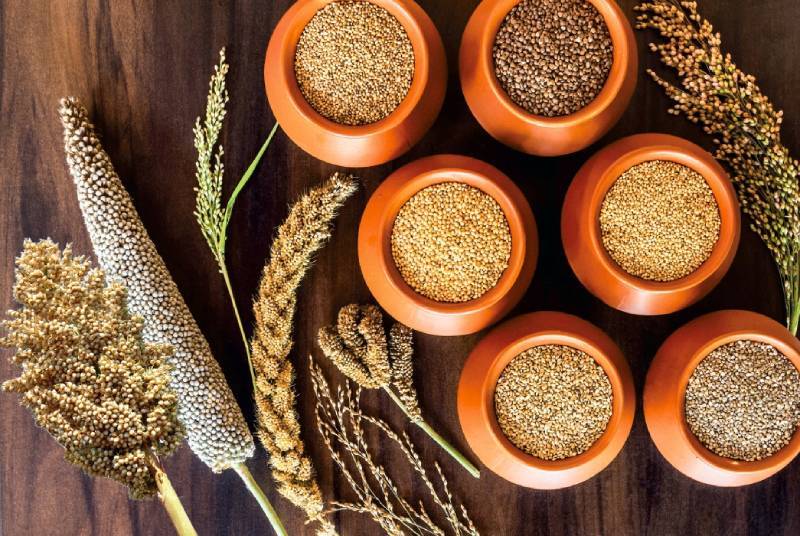In a world where prominent staple grains like rice, wheat, and maize often steal the limelight, it’s easy to overlook the diminutive powerhouses known as millets. These unassuming grains, cherished for centuries, have staged a remarkable resurgence on our dining tables, armed with a wealth of health benefits.
Millets boast an impressive nutritional profile, serving as abundant sources of carbohydrates, protein, dietary fiber, micronutrients, vitamins, and phytochemicals. These grains provide a substantial energy boost, typically ranging from 320 to 370 kcal per 100 grams of consumption. However, what truly sets millets apart is their unique composition.
Notably rich in dietary fiber, millets contain a higher proportion of non-starchy polysaccharides and dietary fiber compared to conventional grains. This heightened fiber content contributes to maintaining a healthy gastrointestinal system. Moreover, millets play a role in regulating blood lipid profiles and managing blood glucose levels, making them an excellent alternative for individuals with celiac disorder and diabetes due to their minimal gluten content and low glycemic index.
Beyond their nutritional worth, millets are brimming with health-promoting phytochemicals, including phytosterols, polyphenols, phytocyanins, lignins, and phytoestrogens. These compounds serve as antioxidants, immunological regulators, and detoxifying agents, playing a pivotal role in averting age-related degenerative diseases such as cardiovascular ailments, type-2 diabetes, and cancer.
Multiple studies underscore that millets contain approximately 50 different phenolic groups and their derivatives, exhibiting potent antioxidant capabilities. These include flavones, flavanols, and ferulic acid. Interestingly, a significant portion of these vital phenolic components, crucial antioxidants, is found in bound form in proso and finger millet, while pearl millet provides them in their free form.
Here’s a closer look at some specific millet varieties and their unique health benefits:
- Foxtail Millet: Renowned for its gluten-free nature, foxtail millet is a nutritional powerhouse with an abundance of fiber and essential minerals. It’s an excellent choice for weight management and improved digestive health.
- Pearl Millet: With its rich dietary fiber content, pearl millet is beneficial for regulating blood sugar levels, making it a valuable addition to the diet, particularly for individuals with diabetes.
- Finger Millet (Ragi): Celebrated for its impressive phytochemicals and calcium content, finger millet aids in bone health and guards against degenerative diseases.
- Proso Millet: Proso millet offers bound phenolic antioxidants that contribute to its health benefits, including immune support and protection against age-related diseases.
- Little Millet: Though small in size, little millet packs a nutritional punch, featuring protein and dietary fiber to boost health. Abundant in vitamin B3, it lowers cholesterol, enhances metabolism, promotes tissue repair, and keeps you energized.
- Barnyard Millet: Brimming with dietary fiber and essential nutrients, barnyard millet is an excellent choice for improving digestive health. These ivory-hued seeds surpass other cereal grains in terms of nutrition, making them ideal for fortifying bone health, whether in kheer, dosa, or idli.

